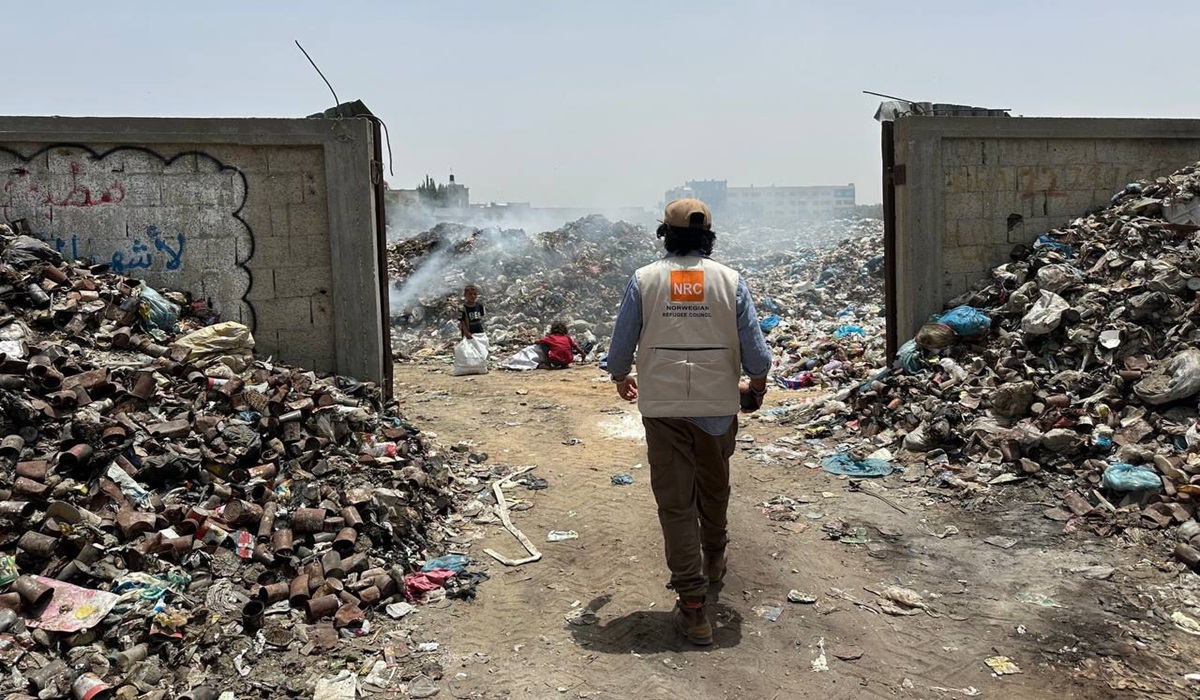Gaza, Palestine – The Norwegian Refugee Council (NRC) has reported a severe escalation in the humanitarian crisis in Gaza, following the latest relocation orders issued by the Israeli military. Maysa Saleh, NRC’s Education Officer in Deir al-Balah, provided an on-the-ground update, highlighting the dire conditions faced by displaced families and the overall population.
Since the orders on 1 July, approximately 250,000 individuals have fled Khan Younis to overcrowded areas in western Gaza and Deir al-Balah. The relocation, conducted without assurances of safety or adequate accommodation, has forced many families to sleep in the open, carrying only what they could. The situation has been exacerbated by the closure of the Rafah border crossing, limiting people’s ability to obtain basic necessities.
“We have seen families sleeping on the ground next to their belongings and walking long distances with their children,” Saleh said. “The daily stress is overwhelming, with the primary concern being food scarcity.”
Food availability is critically low, with local markets offering only limited vegetables and rapidly depleting supplies of tinned food. Prices for essentials have skyrocketed: one kilogram of chicken costs 60 ILS (around 15 USD), 30 eggs are 120 ILS (around 30 USD), and a medium-sized box of baby milk is 70 ILS (around 19 USD).
The NRC has faced significant challenges in providing aid. Almost no humanitarian aid has arrived in the past week, and the number of commercial trucks entering through Kerem Shalom has drastically decreased. Aid trucks are stuck at the Al-Arish crossing in Egypt, unable to reach Gaza due to Israeli restrictions and law and order breakdowns.
Additionally, Gaza is experiencing a severe cash shortage, compounded by limited internet access and unequal access to mobile phones, which hampers cashless banking. Fuel shortages have disrupted water supply, reducing production capacity and affecting distribution amid a heatwave.
“There are so many dilemmas: lack of electricity, food, internet, cash,” Saleh noted. “Sometimes we have water twice a week, sometimes once every two weeks. Tents have also virtually run out. I saw a tent made out of empty fabric rice sacks sewn together. It is shocking how people have to innovate their way to survival.”
Children are among the most affected, many now living on the streets. Their future is clouded by deprivation and psychological trauma. “We hear children asking, ‘Why are we displaced?’ ‘Are we all going to get killed?’” Saleh shared. “The scale of suffering makes you feel guilty that you are still alive. This war has presented us with the most painful choices.”
Despite these challenges, the NRC continues its efforts to provide relief. They deliver 90 cubic metres of drinking water per day to over 24,000 displaced people across 10 sites, although recent fuel shortages have temporarily halved this supply. The NRC is also disseminating vital information on explosive ordnance risks and has distributed over 1,552 hygiene kits, despite the scarcity of such items in the market.
The NRC’s commitment remains steadfast. “We try to tell people that we still have plenty of strength and resilience left in us and that we need to use that to help the children cope,” Saleh concluded. “When you make people feel there is someone who listens to and shares the pain with them, it makes them feel comfortable.”









